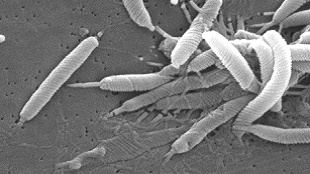Abstract
BACKGROUND
Helicobacter pylori infection is a well-known risk factor for gastric cancer. However, the contribution of germline pathogenic variants in cancer-predisposing genes and their effect, when combined with H. pylori infection, on the risk of gastric cancer has not been widely evaluated.
METHODS
We evaluated the association between germline pathogenic variants in 27 cancer-predisposing genes and the risk of gastric cancer in a sample of 10,426 patients with gastric cancer and 38,153 controls from BioBank Japan. We also assessed the combined effect of pathogenic variants and H. pylori infection status on the risk of gastric cancer and calculated the cumulative risk in 1433 patients with gastric cancer and 5997 controls from the Hospital-based Epidemiologic Research Program at Aichi Cancer Center (HERPACC).
RESULTS
Germline pathogenic variants in nine genes (APC, ATM, BRCA1, BRCA2, CDH1, MLH1, MSH2, MSH6, and PALB2) were associated with the risk of gastric cancer. We found an interaction between H. pylori infection and pathogenic variants in homologous-recombination genes with respect to the risk of gastric cancer in the sample from HERPACC (relative excess risk due to the interaction, 16.01; 95% confidence interval [CI], 2.22 to 29.81; P=0.02). At 85 years of age, persons with H. pylori infection and a pathogenic variant had a higher cumulative risk of gastric cancer than noncarriers infected with H. pylori (45.5% [95% CI, 20.7 to 62.6] vs. 14.4% [95% CI, 12.2 to 16.6]).
CONCLUSIONS
H. pylori infection modified the risk of gastric cancer associated with germline pathogenic variants in homologous-recombination genes. (Funded by the Japan Agency for Medical Research and Development and others.)…







